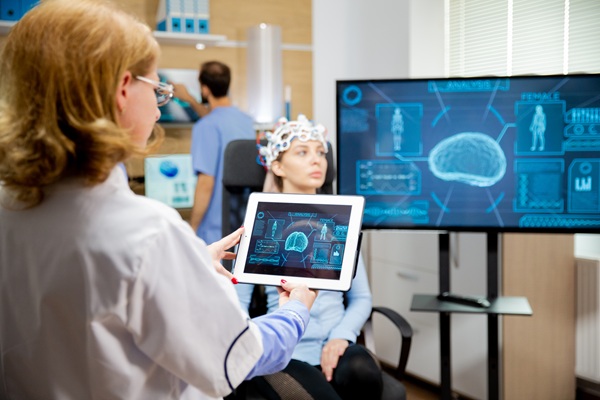Which Mental Disorders Can TMS Treatment Help Manage?

Transcranial magnetic stimulation, also known as TMS treatment, is an innovative and noninvasive therapy for several mental health conditions. By using magnetic fields to stimulate specific areas of the brain, TMS is an effective treatment for cases where traditional methods have provided little to no relief. It is important to know which mental disorders are best treated by this therapy to understand its growing importance in modern psychiatry.
Major depressive disorder (MDD)
One of the uses of TMS treatment is for major depressive disorder (MDD). This condition can lead to persistent feelings of hopelessness and sadness, a loss of interest, and difficulty functioning in day-to-day life. People who do not respond adequately to antidepressant medications — also known as treatment-resistant depression — may benefit from TMS treatment as a complementary part of their treatment plan.
By targeting the prefrontal cortex, which is the region of the brain associated with mood regulation, magnetic pulses help restore normal neural activity. TMS can reduce depressive symptoms and improve the patient's overall quality of life. Patients often experience symptom improvement after several sessions, without the side effects associated with medications.
Anxiety disorders
Anxiety disorders, including generalized anxiety disorder (GAD) and panic disorder, can severely disrupt a person's everyday function and quality of life. Similar to MDD, traditional treatments such as cognitive behavioral therapy and medication are effective for many people. However, some individuals continue to experience persistent symptoms. Fortunately, TMS can be combined with these traditional methods as a complementary option for managing anxiety symptoms.
Researchers believe that TMS can help rebalance hyperactivity in brain regions linked to fear and worry, such as the amygdala and anterior cingulate cortex. Regular sessions may reduce physiological symptoms of anxiety, including restlessness, tension, and intrusive thoughts. As understanding of brain nerves improves, TMS can help patients manage chronic anxiety conditions.
Obsessive-compulsive disorder (OCD)
Obsessive-compulsive disorder is characterized by intrusive thoughts and repetitive behaviors. For many individuals, conventional treatments, including medication and exposure therapy, may not produce sufficient relief. TMS treatment has been approved by the U.S. Food and Drug Administration (FDA) as a therapeutic and noninvasive option for treating OCD.
This therapy specifically targets the supplementary motor area and orbitofrontal cortex. These regions of the brain are believed to be involved in obsessive and compulsive behaviors. By influencing these neural pathways, TMS can help decrease the frequency and intensity of obsessions that lead to compulsions.
Post-traumatic stress disorder
Post-traumatic stress disorder (PTSD) is a mental health condition that occurs after experiencing a traumatic event, such as a car accident, assault, or combat exposure. Symptoms of PTSD can be severe and persistent, interfering with a person's daily functioning. When left untreated, PTSD can significantly impact a person's relationships, work performance, and overall well-being.
PTSD may be linked to imbalances in brain activity, particularly in the amygdala and hippocampus, which are involved in fear and memory. TMS targets these areas to regulate brain function. This noninvasive treatment method can reduce the intensity and prevalence of PTSD symptoms by restoring balanced neural activity and improving emotional regulation.
Learn more about TMS at Hope TMS and Neuropsychiatric Center
TMS treatment represents a breakthrough in psychiatric care, offering hope for individuals who have not responded to traditional treatment methods. As research progresses, TMS continues to redefine the possibilities for noninvasive mental health treatment and improved quality of life. Call our New York office to learn more about TMS or to schedule a consultation.
Request an appointment here: https://www.hopetmsofny.com or call Hope TMS and Neuropsychiatric Center at (646) 578-8152 for an appointment in our New York office.
Check out what others are saying about our services on Yelp: Read our Yelp reviews.
Recent Posts
Restless leg syndrome can make evenings difficult by creating an urgent need to move the legs when the body tries to rest. Considering symptoms like crawling or pulling often intensify at night, sleep quality can drop, and daytime energy can follow. With the right support, many people can manage their symptoms and get a good…
PTSD syndrome can shape your daily experiences in significant ways, from your emotional balance to your physical health and personal stability. Symptoms of PTSD can become an invisible burden that affects your routine and interpersonal connections. While these symptoms vary from person to person, they can impact every corner of your life without the right…
Adult ADHD therapy supports individuals navigating challenges with focus, time management, and emotional regulation. While attention deficit hyperactivity disorder, or ADHD, is commonly diagnosed in childhood, its symptoms can persist into adulthood, often interfering with careers, relationships, and daily tasks. Professional therapy offers a structured approach to managing these difficulties and building long-term strategies for…
A TMS doctor focuses on safety, evidence, and practical results when discussing transcranial magnetic stimulation for depression and related conditions. This noninvasive therapy uses targeted magnetic pulses to activate specific brain networks. Strong safety protocols, careful screening, and consistent monitoring provide patients with a clear path to relief while allowing them to maintain their everyday…


